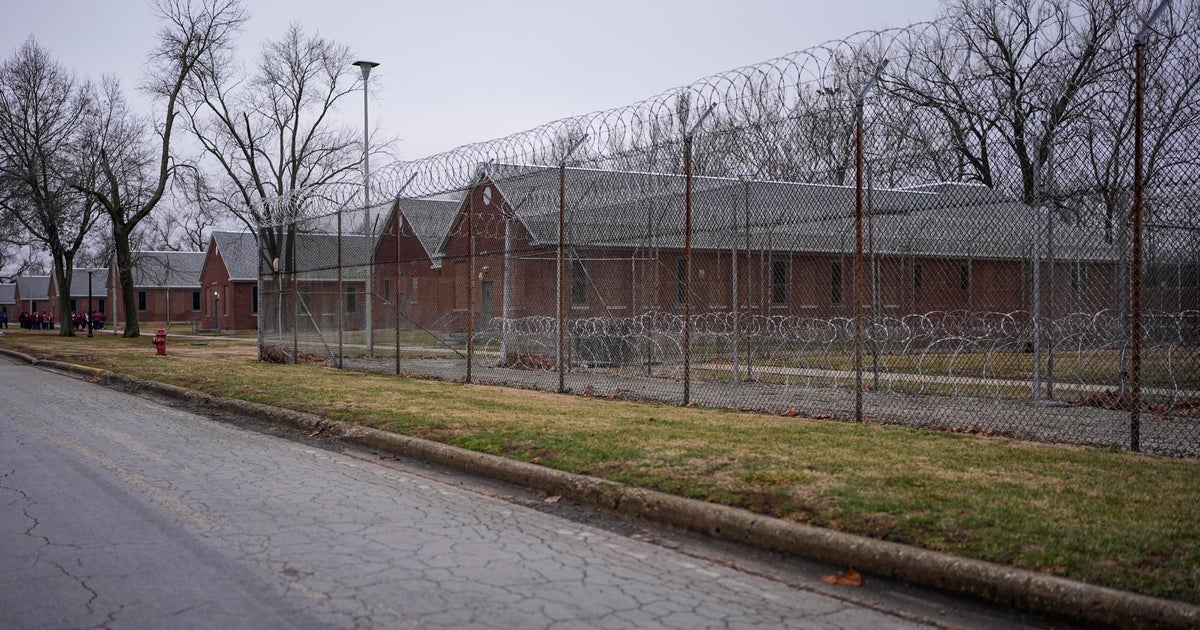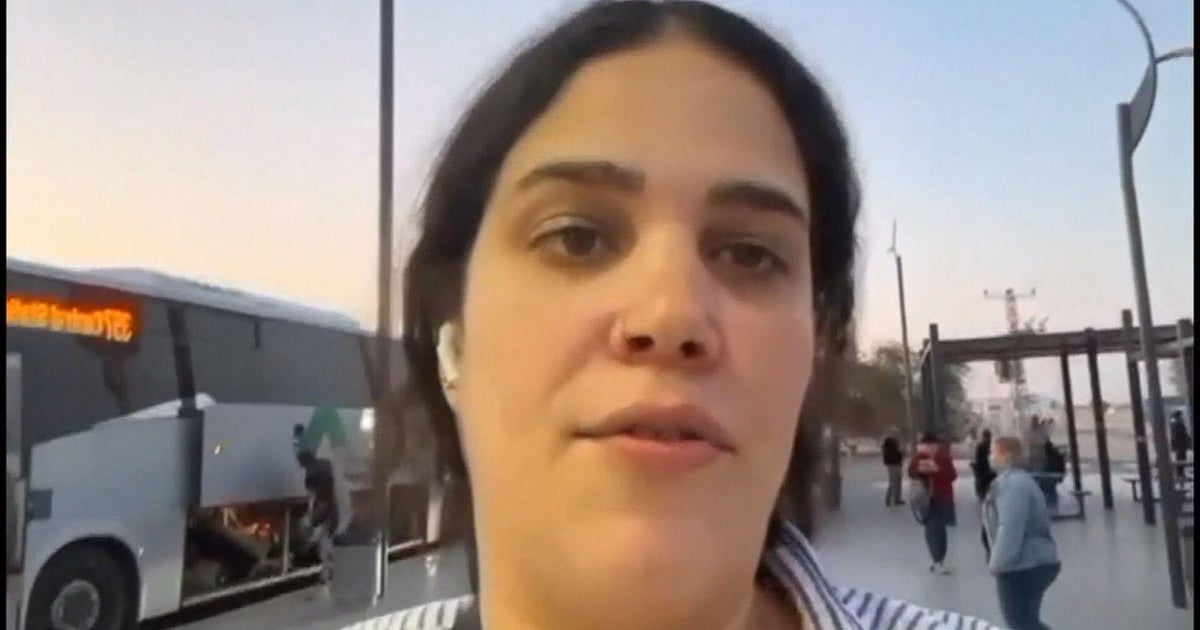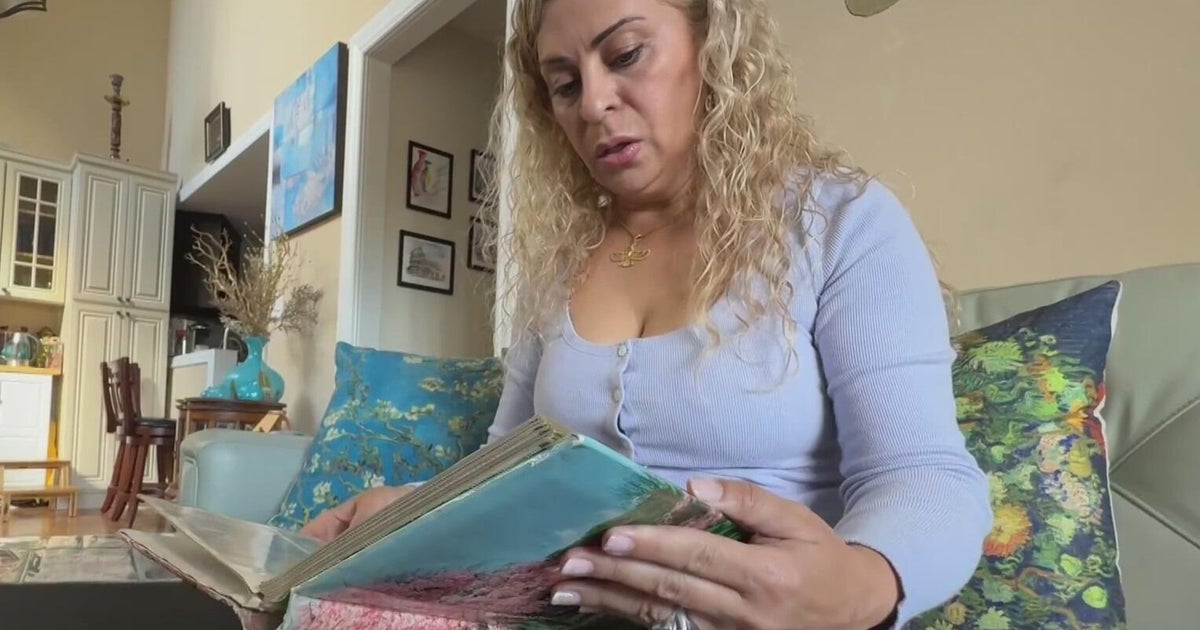Pregnant Homeless Women Struggle To Find Shelter On Bay Area Streets
OAKLAND (KPIX 5) -- "Homeless" and "pregnant" are two words that shouldn't go together, but sadly they often do. They describe a portion of the homeless population that is hidden by design.
At just 19-days-old, baby Jeremy already has a troubled past. He was born addicted to drugs.
"Yes, very addicted to heroin. He tested positive for meth and heroin," explained Robyin Clark, who affectionately refers to herself as Jeremy's grandma.
"He's a very good baby. He's awesome," she said.
Robyin is friends with Jeremy's birth mother. They met as the test group for Oakland's Community Cabins, a rehousing program for the homeless.
Robyin has found permanent housing, but Jeremy's parents are still struggling on the street. They haven't been able to get clean.
"She decided not to do that no more. They're both out on a tent on the street they're homeless," said Robyin.
Erin Finafrock is another friend of Robyin's, and another participant in the Community Cabin program. She has been through hell and back.
"I was homeless out here for about two years," Finafrock said.
She's a former addict, who got clean, then found housing in paradise in the fall of 2018.
"About two months later, that fire hit and I was pushed into an evacuation site," remembered Finafrock. "So being homeless, not being homeless, to being homeless again."
She is now back out on the street and pregnant, expecting another seemingly insurmountable challenge.
"I'm not going to say hoping, I will be somewhere before the baby gets here," said Finafrock.
The father of her unborn child is in prison. Finafrock is not quite sure how far along she is. She guesses between four and a half months and five months. She has not been to see a doctor during her pregnancy.
She spends most days sleeping in a tent, alone and terrified.
"Just the whole situation. I don't know what to do. I don't know who to talk to. I just feel like I'm really alone. there's not much resources out here for women," she said.
Martha Ryan is the executive director of San Francisco's Homeless Prenatal Program. She launched it 30 years ago after working at refugee camps in Somalia, Sudan, Ethiopia and Uganda.
Then Ryan says she realized there is a developing world here too.
"The words 'homeless' and 'pregnant' they really shouldn't go together, and yet they do," said Ryan. "To have families that are living on the street, living in cars, riding 24 hour buses so they can get through the night. That shouldn't be happening in a city that's as wealthy as San Francisco is."
Ryan and her team are currently petitioning the human rights commission to prioritize homeless pregnant women who are on wait lists for housing. Right now, they are not a priority.
According to the Department of Homelessness and Supportive Housing in San Francisco, pregnant women only qualify for expedited entry to family shelters if they are in their third trimester and medically at risk. Even then, the average wait for shelter is 121 days, which would be after the baby is born.
You can't be healthy if you don't have housing; if you aren't staying inside somewhere, said Ryan.
A study by UCSF'S California Preterm Birth Initiative found housing instability during pregnancy increases the odds of preterm birth by 20 percent.
The average cost of hospitalization for one premature infant is $55,393. That dwarfs the cost of placing them indoors.
Ryan says if we want to help the Jeremy's of the world, we have to help the Erin's too.
"If we don't go upstream now and work with pregnant moms and help those moms become stable, then I guarantee the next generation of chronically homeless is in the pipeline right now," said Ryan.
Right now, it's unclear if Jeremy is that next generation.
Robyin doesn't know how long he'll stay with her, if he'll enter the foster system or if he'll still be called Jeremy by the time he can understand this story.
He has no idea what kind of world he was born into or if it's going to get any better for him.
"Just an innocent little baby out of all of this," said Robyin.
As for Finafrock, it's not lost on her that she's made a lot of decisions that put her baby at risk.
So she's taking another one, making the choice to get hooked once again, on hope.
The hope of finding a home and the idea that maybe if she can save this baby from a life on the street it might just save her right back.
"I look at it as maybe this baby is here to save my life. Who knows? Maybe make the steps in the right direction and actually do something with myself and keep doing it," said Finafrock.
The homeless prenatal program employs 100 women. Nearly half of those women are former clients.
Parties interested in helping can visit the Homeless Prenatal Program website for information on how to donate or get involved.







